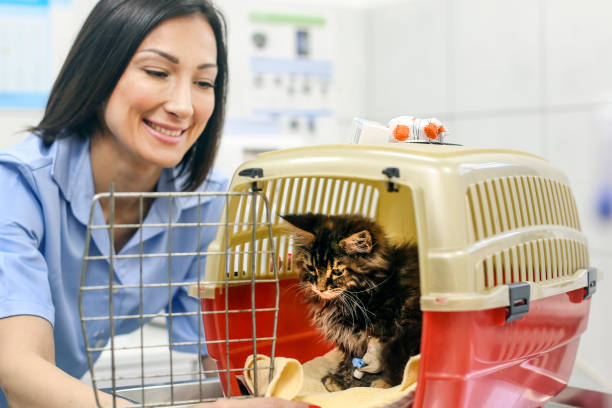Poisonous Facts: Identifying and Eliminating Health Dangers in the Litter Box
Poisonous Facts: Identifying and Eliminating Health Dangers in the Litter Box
Blog Article

Cat owners are no strangers to the day-to-day chore of digging their furry buddy's litter box. It's a regular task that's typically overlooked, yet vital for maintaining a tidy and healthy environment for both felines and their human buddies. Nevertheless, what many animal owners might not recognize is that there are surprise health dangers related to the litter box that can position risks to both human beings and cats alike. From respiratory concerns to parasitic infections, the litter box can harbor a variety of risks that need mindful attention and management.
One of the most common health threats associated with the litter box is respiratory problems. Cat litter, specifically clay-based varieties, can include great dust particles that end up being air-borne when disturbed during scooping or when felines dig in the litter. These dust particles can be breathed in by both cats and humans, resulting in breathing inflammation and exacerbating conditions such as asthma or allergies. Sometimes, extended direct exposure to litter dust can even cause more severe respiratory problems in both felines and their owners.
To decrease breathing risks, it's important to select low-dust or dust-free litter choices and to scoop the litter box in a well-ventilated location. Using a dust mask while cleaning up the litter box can likewise help in reducing exposure to airborne particles, particularly for individuals with respiratory sensitivities.
Another considerable health danger connected with the litter box is the capacity for parasitic infections, especially from Toxoplasma gondii, a typical parasite discovered in feline feces. While the majority of healthy people might not experience signs if contaminated, pregnant ladies and people with weakened body immune systems are at greater danger of developing serious problems, including abnormality and neurological disorders.
To reduce the danger of parasitic infections, pregnant ladies ought to avoid cleaning the litter box altogether and entrust this job to another family member. In addition, all people must practice great hygiene habits, including cleaning hands completely after handling the litter box or coming into contact with cat feces, to lower the threat of transmission.
Lots of industrial cat litters contain Self Cleaning Litter Boxes chemicals and ingredients that can present health dangers to both cats and humans. For instance, some fragrant litters may contain fragrances or vital oils that can EcoFriendly Litter Boxes irritate sensitive breathing systems or set off allergic reactions. Additionally, clumping litters typically include sodium bentonite, a clay material that can broaden when ingested, leading to intestinal obstructions if consumed by cats.
To lessen chemical exposure, opt for odorless or naturally-scented litters made from naturally degradable materials such as paper, wood, or plant-based options. These environment-friendly choices are not only more secure for your cat's health however also much better for the environment.
The litter box environment offers an ideal breeding place for bacteria, consisting of potentially harmful pathogens such as E. coli and Salmonella. These germs can contaminate the litter box and surrounding locations, increasing the danger of infection for both cats and people. Felines can contract bacterial infections through direct contact with contaminated litter or by ingesting feces during grooming, while human beings can become contaminated through contact with polluted surfaces or incorrectly cleaned hands.
To decrease the threat of bacterial contamination, it's important to clean up the litter box routinely utilizing hot water and moderate detergent, along with to disinfect the surrounding location to prevent the spread of germs. Additionally, practicing great hand hygiene, consisting of washing hands completely after handling the litter box or coming into contact with feline feces, can assist decrease the danger of bacterial transmission.
While the litter box might appear like an ordinary element of cat ownership, it's important to recognize the prospective health threats related to this seemingly harmless component. From respiratory problems to parasitic infections and bacterial contamination, the litter box can harbor a range of hazards that need mindful attention cat litter box self cleaning and management. By taking proactive measures to lessen direct exposure to these risks, cat owners can develop a much safer and healthier environment for both their feline companions and themselves.